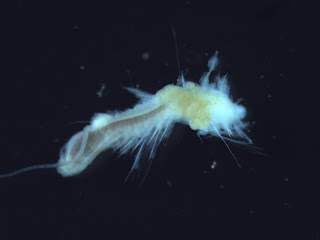Ulriken

I had exactly one free day between the end of the Ocean Outlook conference and my flight home. How I was going to spend it was never in question. When you have a free day in Norway, you go on a hike. Some of Ulriken's 1333 stairs. There's a mountain right outside of Bergen called Ulriken, which is a super common hike for locals and tourists alike. You can take a cable car to the top, or you can hike it. If you're crazy, you can jog up Ulriken, and the internet warned me I would see some locals doing so. It was not an exaggeration. I got passed by so many people running up the mountain. Norwegians are insane. My plan was to summit Ulriken, then follow the trail across to Bergen's other (smaller) mountain peak, Fløyen. Based on information online, it seemed like it should take me 1 hour to reach the summit and another 4 hours to hike across. That's exactly the length of hike I was looking for, so I packed my bag and set off. When you start up Ulriken, you have a f




